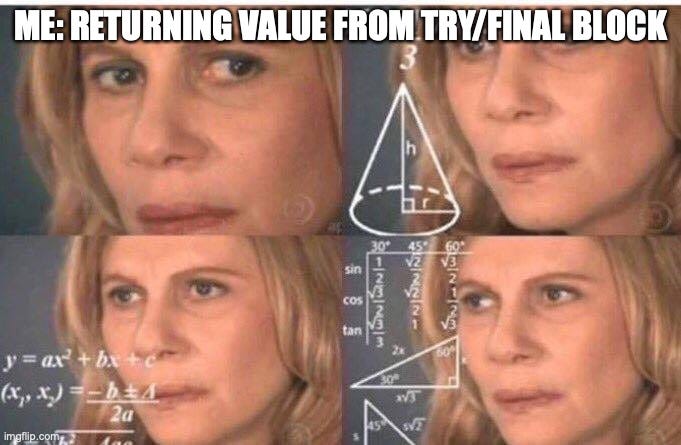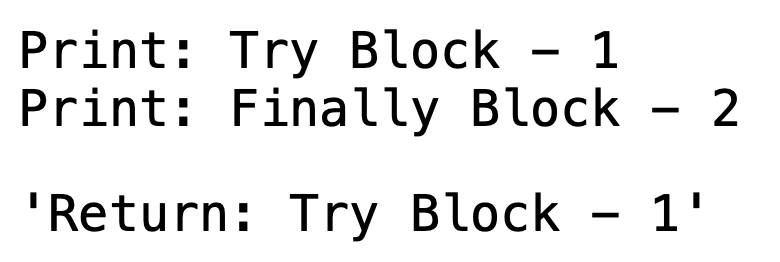Aravind Ramalingam
- Python
- Exception
- Function
- Error Handling
Do You Really Understand Try & Finally in Python?
In python, try and except blocks are often used by programmers for handling any exception or unhappy scenarios. Finally clause is very under appreciated & can be better utilised. Let us check out how final-block works.

Deep dive
No matter what happened previously, the final-block is executed once the code block is complete and any raised exceptions handled. Even if there's an error in an exception handler or the else-block and a new exception is raised, the code in the final-block is still run.
This quote from the python
documentation is absolutely correct but the execution behavior is
little tricky when try and
finally blocks are encapsulated within
a function which has a return
statement. Let me explain with examples. See if you could guess the
output of the following functions.
Example 1:
# Both the try & final blocks have print statements and function returns value from final-block
def example_1():
try:
val = 1
print(f"Print: Try Block - ")
finally:
val = val + 1
print(f"Print: Finally Block - ")
return f"Return: Finally Block - "
example_1()

Function example_1 is simple and
straight, first the try-block gets executed and then final-block.
The variable val has value 1 in
try-block and gets updated to 2 in final-block.
Example 2:
# The try block has return statement & final block has only print statement
def example_2():
try:
val = 1
print(f"Print: Try Block - ")
return f"Return: Try Block - "
finally:
val = val + 1
print(f"Print: Finally Block - ")
example_2()

Function example_2 is where things get
a bit tricky, the returnstatement in
try-block is executed after the final-block but the value of the
variable valreturned is not affected
by the changes made in the final-block.
Example 3:
# Both the try & final blocks have return statements
def example_3():
try:
val = 1
print(f"Print: Try Block - ")
return f"Return: Try Block - "
finally:
val = val + 1
print(f"Print: Finally Block - ")
return f"Return: Finally Block - "
example_3()

Output of the function example_3 is
easy to guess. When the return
statement in final-block is executed, the function exits so the
return statement in try-block is
never executed.
Take Away

try & finallyblocks are not quite as straight forward as one might
think, especially when they are returning values from a function. For
more such interesting tidbits follow me via
Twitter. The takeaways from this post are:
- Where you put the
returnstatement is going to make a difference. - Even though the
returnstatement from try-block is executed after the final-block, value of the variable returned won't be affected by alteration made in the final-block.